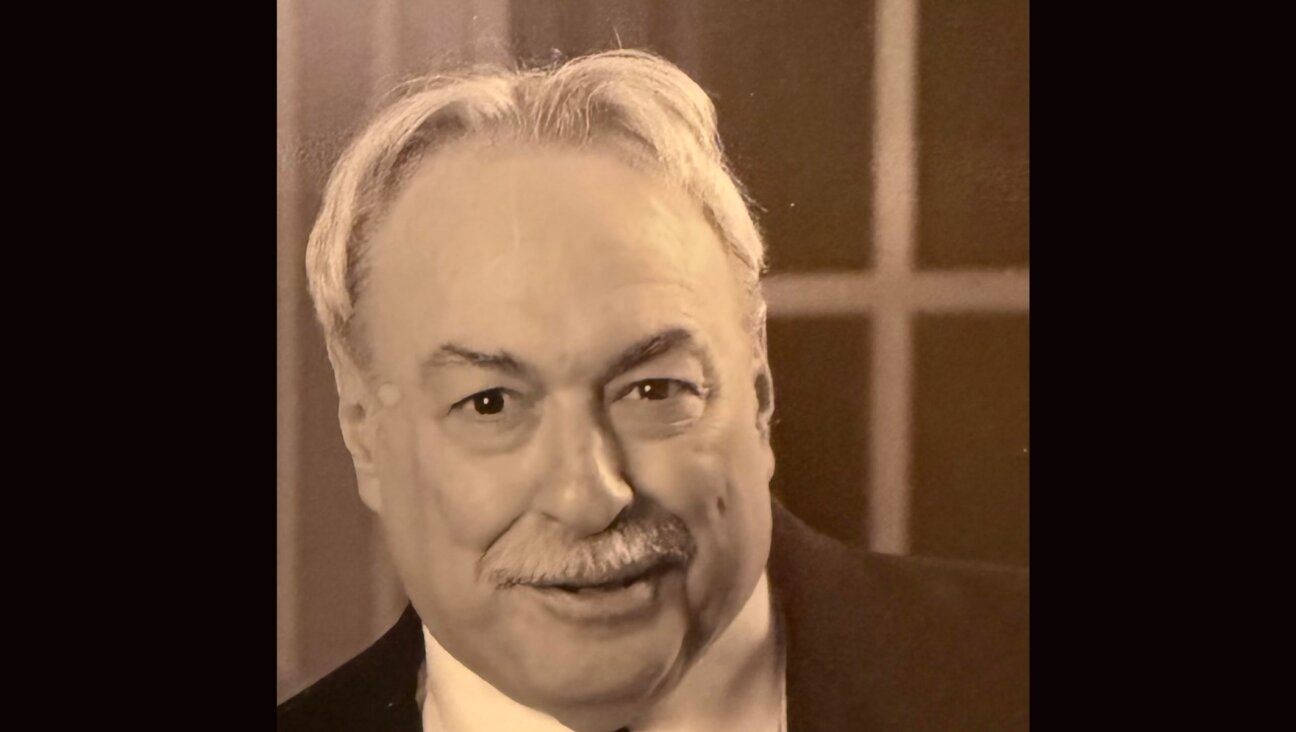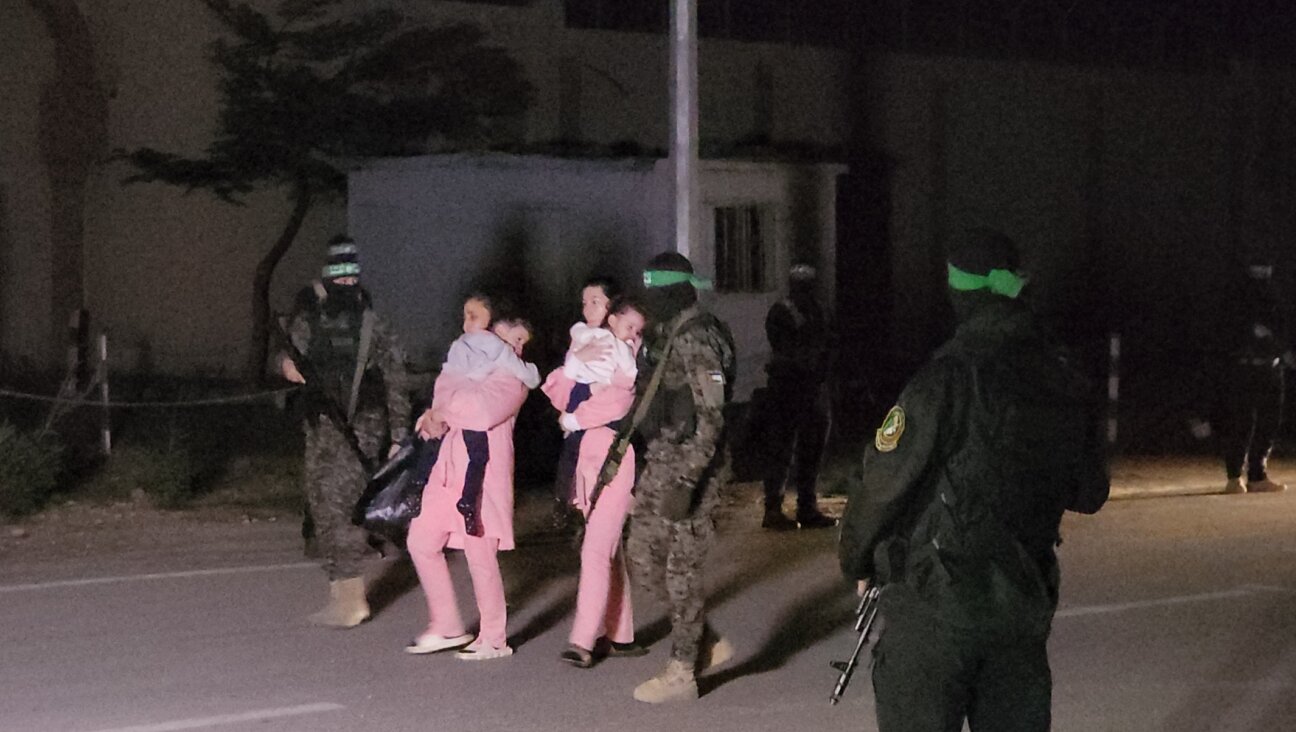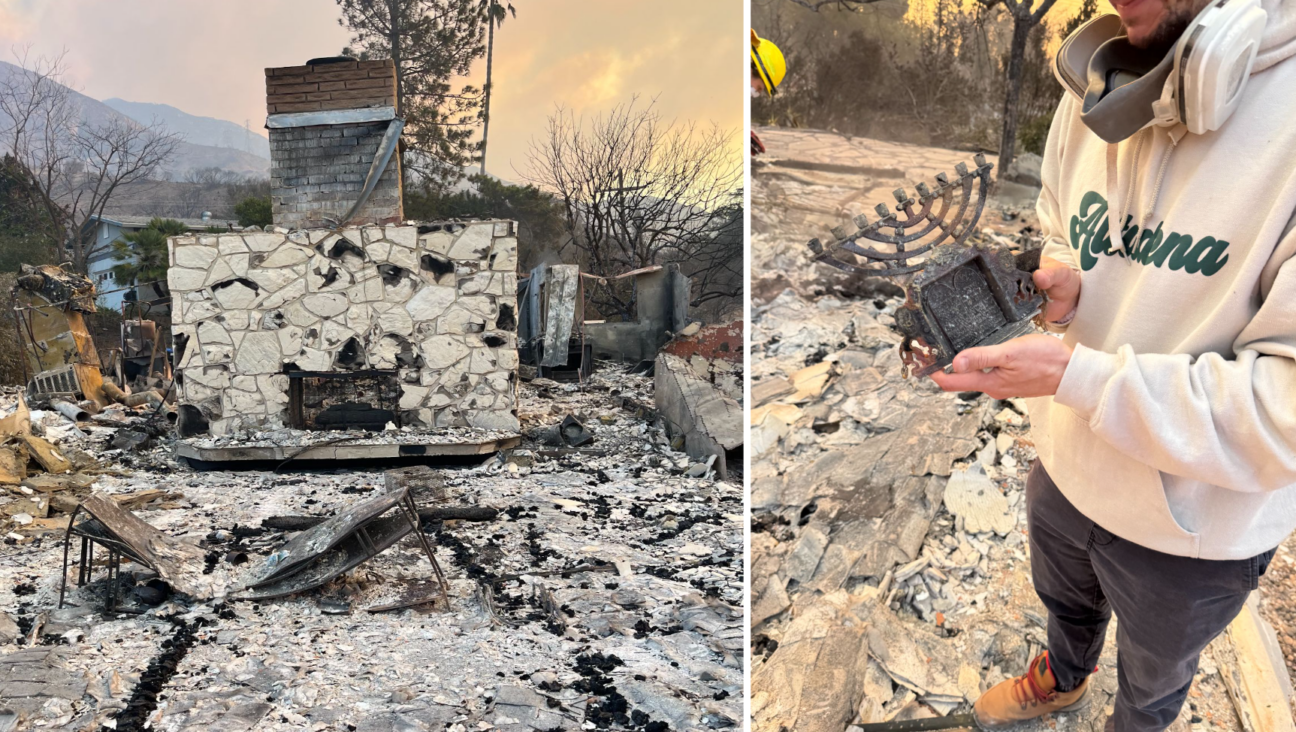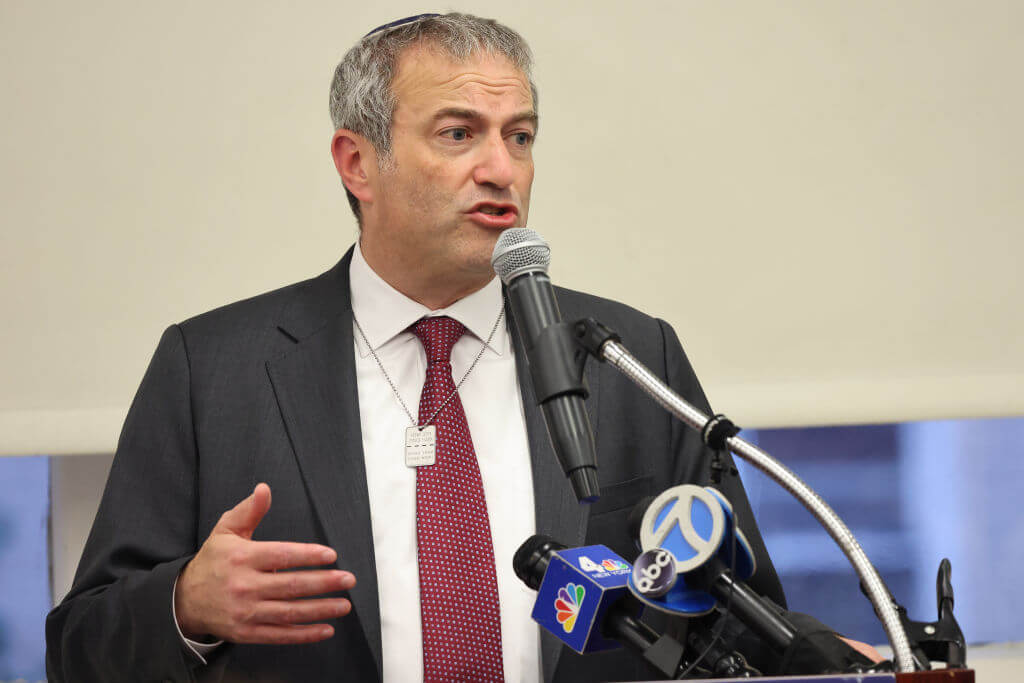‘Shalom,’ With a Brogue: Irish Jews Face the Future
Jean Reuben doesn’t quite know how to celebrate St. Patrick’s Day.
It’s usually not an issue for someone like Reuben, an Orthodox Jew, since Jews don’t typically commemorate Catholic saints. But Reuben is also of Irish descent; her mother was from Belfast, her father from Dublin. Although she left Ireland long ago, Reuben has fond memories of her childhood in the old sod.
Jews in Ireland don’t celebrate St. Patrick’s Day, but in their diaspora from the Emerald Isle, many Irish Jews feel a twinge in their hearts come March 17. “The Jewish sons of Ireland celebrate [St. Patrick’s Day] much more in America,” said Reuben’s mother Ray Rivlin, author of the new book “Shalom Ireland: A Social History of the Jews in Modern Ireland” (Gill & Macmillan).
“Shalom Ireland” is the latest history of an organized, observant Jewish community that — some would argue — is breathing its last sigh.
Jews have been in Ireland since the Anglo-Norman invasions of the 13th century, but it wasn’t until the late 19th century that large numbers fleeing pogroms in Eastern Europe began settling in earnest.
In her book, Rivlin discusses the Dublin Jewish Board of Guardians that brought relief to Jewish immigrants. She talks about Jews who opened up businesses in Cork, Limerick and Belfast. She mentions Jews who entered politics and fought alongside their countrymen in the Easter Uprising of 1916. (Robert Driscoe, the Lord Mayor of Dublin, fought with the independence movement leader Eamon de Valera and ran guns into Ireland from Germany.) Rivlin recreates Clanbrassil Street, once a thriving Jewish enclave of kosher butchers, fishmongers and merchants that James Joyce chose to make the birthplace of his Irish Jewish hero, Leopold Bloom. A century ago, during Clanbrassil Street’s heyday, Jews from all over Dublin went to the haberdasher, the drapery store and the baker there, and Yiddish — inflected with an Irish brogue — was chattered in the street.
Rivlin said that in writing “Shalom Ireland,” she had three goals: “I wanted to give some understanding of Jewish customs [to the non-Jewish Irish]… I wanted to record the contribution Jews made to Ireland, and recreate for posterity a way of life very peculiar to Jewry.”
Rivlin is a holdout for Irish Jewry; the former secondary school teacher’s four children have all moved away. “I left Ireland… because there was nobody there,” said Reuben. The community had aged, she told the Forward, and finding a Jewish husband was easier in England or Israel.
Rivlin said she is “very upset” about Jews leaving. “I felt we were going down the tubes,” she said, “and nobody has properly documented us.”
The number of Jews in Ireland dwindled from a post-World War II high of more than 5,000 to around 1,000 in 2000. Last year in Valerie Lapin Ganley’s documentary film, also called “Shalom Ireland” (the book and documentary are unrelated), Jewish Dubliner Joe Morrison made a frank assessment of the Jewish presence in Ireland: “I can’t see a future for a Jewish community in Ireland in the next 40 to 50 years.”
Optimists point to a small spike recently in the number of Jews settling in Ireland, due to pharmaceutical and computer firms that have set up shop there. The 2002 census showed an increase to 1,780 Jews.
“I personally think there will be a renaissance,” Ben Briscoe, son of Dublin’s former Jewish mayor, said in the film “Shalom Ireland.” “I don’t think for one minute that the Jewish community is going to disappear.”
If nothing else, Jews who have left Ireland retain much of their Irish identity, to the point of marking St. Patrick’s Day as part of their national heritage. Some insist that, wherever they live, they intend to keep their Jewish Irish heritage alive.
“I think the Irish are very similar to the Jews,” said Reuben. “Both immigrate all over the world. Wherever you are in the world, you bump into an Irishman. You also bump into a Jew. Being both is a bit extra-special.”
A message from our Publisher & CEO Rachel Fishman Feddersen

I hope you appreciated this article. Before you go, I’d like to ask you to please support the Forward’s award-winning, nonprofit journalism so that we can be prepared for whatever news 2025 brings.
At a time when other newsrooms are closing or cutting back, the Forward has removed its paywall and invested additional resources to report on the ground from Israel and around the U.S. on the impact of the war, rising antisemitism and polarized discourse.
Readers like you make it all possible. Support our work by becoming a Forward Member and connect with our journalism and your community.
— Rachel Fishman Feddersen, Publisher and CEO























